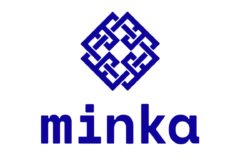The Central Bank of Nigeria (CBN) has announced the issuance of new guidelines for financial institutions that want to offer at least two of its four licensed payments systems. This is part of the apex bank’s moves to improve financial inclusion and create efficient payments systems.
The announcement was made on Tuesday, August 3, by Director of Payments System Management, Musa I. Jimoh, who mentioned that all companies who are interested in offering any two of payment switching and issuing services, mobile money operations (MMOs), or payment solution services (PSSs) will now be required to set up a Payment Service Holding Company.
In December 2020, the apex bank had announced new license categorizations for Nigerian payments systems, dividing all operations into four units, and announcing that institutions who wanted to combine MMO with payments switching and processing would be required to set up holding company structures.
What is a Payment Service Holding Company?
According to Section 2.0 of the Guidelines for Licensing and Regulation of Payments Service Holding Companies in Nigeria, they are holding companies whose principal objectives are to manage equity investments of two or more companies that are payment service providers dealing in any two of mobile money operations, switching and processing, or payment solution services.
A point to note is that all PSHCs are non-operational and will only manage investments in either of these systems. This means that PSHC won’t handle the day-to-day operations of any of the payments systems, the holding companies can only manage investments or create subsidiaries that will directly engage in those activities.
In fact, S.5.1 states that “the activities of the PSHC shall be restricted to the holding of equities in financial and technological subsidiaries that facilitate and/or enhance innovative digital financial services.” The Guidelines also list out other activities including human resources management, risk management, and ICT which PSHCs can engage in provided they get prior written approval from CBN.
A new hurdle for financial institutions
Earlier in July, CBN issued new directives for Payment Service Banks and Mobile Money Operators, ordering operators of the latter to standardize their operations and infrastructure. These directives were aimed at ensuring MMOs and PSBs could access underbanked rural and peri-urban communities, and provide them with working financial solutions.
There are a few hurdles that some of them will have to cross with the previous guidelines including provisions for information dissemination, and reach of activities. These new guidelines also present a new hurdle that some of the institutions will have to face.
Any financial institution, including banks and fintechs, that offer at least two of the three systems listed in the Guidelines i.e mobile money services, switching and processing, and payment solution services, will have to set up a Payment Service Holding Company.
Banks that offer payment switching and processing services as part of their banking operations, will be required to adhere to the guidelines and delineate their processes.
This, according to the CBN, will help create clear distinctions between the activities of each institution, and provide the apex bank with sufficient regulatory oversight.
What it will take to set up a PSHC
For the budgetary aspect, a non-refundable application fee of ₦1,000,000 ($2,439) and a non fee of ₦5,000,000 ($12,121).
On more technical terms, institutions looking to apply for PSHC licenses must traipse two stages: submitting an application for an Approval-in-Principle, and applying for a final license.





















